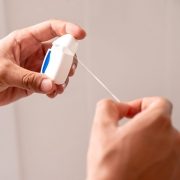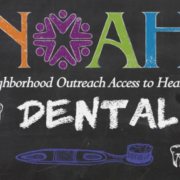No More Bad Breath by Jane Roots, RDH
Do you suffer from bad breath? Well, if so, you’re not alone. Every morning most people wake up with the dreaded “Morning Breath” or “Bad Breath” but for some bad breath is an everyday, all day reality.
Halitosis is chronic bad breath. It shows up every day. It’s the breath that makes you embarrassed to whisper secrets in someone’s ear and the breath that makes you avoid kisses at all cost. Typical fixes like mints, mouth sprays or mouth wash will not get rid of chronic bad breath.
“As many as 1 in 4 people have bad breath. It is one of the most common reason why people go to the dentist.”
Jane Roots, RDH
There are several reasons why some people have daily bad breath. To prevent bad breath the key factor is to determine the root cause.
Here’s a check list of things you need to know about the prevention of bad breath:
- Brush two times a day and floss every night – You need to brush your teeth two times a day and floss every night. Proper brushing means spending at least 2 minutes brushing all sides of your teeth, for example the fronts, backs and tops, which helps to get rid of food particles and the bacterial film (also known as dental plaque or tooth plaque) that forms on our teeth. Don’t forget about flossing. It’s very important to floss your teeth every night before you go to bed. Food particles get caught in between your teeth and if these food articles are not removed, it can buildup and form a substance call calculus or tartar which causes the gums to swell up and bleed. This can cause bad breath. You should also brush your tongue. The tongue has tiny hair like filaments that can trap food particles and bacteria and therefore not brushing your tongue can contribute to bad breath.
- Visit your dentist and or hygienist at least every 6 months – You should visit your dentist/ hygienist for routine cleaning and checkups every six months. The dentist/hygienist can clean your teeth by removing plaque and calculus buildup and can detect problems such as any abnormalities in and around the mouth, gum disease and cavities. Cavities are not the cause of bad breath, it is the bacteria that gets stuck in the decayed pockets of the teeth that make it difficult to keep your mouth clean and your breath fresh.
- Dry mouth – Keeping your mouth moist is important for fresh breath. A healthy saliva flow is one of the best defenses against bad breath. It helps to keep the mouth clean. Be sure to drink plenty of water and consult with your doctor about any contributing factors for dry mouth, such as taking certain medications and any underlying health conditions.
- Smoking – Smoking is also a contributing factor to bad breath and can increase your risk for gum disease. Please ask your doctor for ways to help you quit.
- Systemic issues – Eating healthy foods are key to a good digestive system. A bad digestive system can cause bad breath. In fact, your bad breath could stem from your gut, better known as your gastrointestinal system. Acid reflux otherwise known as heartburn is a related cause for bad breath. People who are diabetic, have liver or kidney conditions or gastrointestinal disorders should see their physician, urologist or gastroenterologist for insight on how bad breath can be reduced regarding these systemic diseases.
- Other Factors – Other factors that can contribute to bad breath are the use of dentures or oral appliances. Follow your dentist’s/hygienist’s recommendations for cleaning your appliances daily to prevent bad breath.
Seeing your dentist/ hygienist for routine exams and cleanings every six months can ensure that your mouth stays healthy. A professional cleaning can remove bacteria and food that your toothbrush or even flossing may miss. Your dental professional will also check for decay that may harbor bacteria. If they do detect any cavities, they can fill them to stop the cavities from getting worse. While cavities do not directly cause bad breath, you can prevent both bad breath and cavities by practicing good oral hygiene and seeing your dentist and hygienist regularly.










